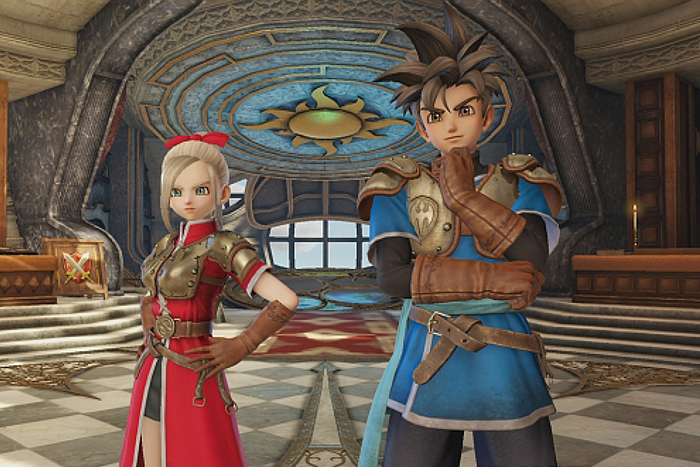
Sugiyama’s career actually ignited in the late 1960s as he began composing music for animated movies, television shows, commercials, and much more. He didn’t begin working with Enix until the early 1980s, who asked him to compose music for its games after discovering his passion and knowledge about the gaming genre. His first project was 1985’s World Golf, but his first major project followed thereafter: Dragon Quest.
Sugiyama is noted as the first video game composer to use a live orchestra to record his music. He’s also noted as the very first composer to conduct a video game concert, which was the “Family Classic Concert” performed by the Tokyo String Music Combination Playing Group in Tokyo back in August 1987. Led by Sugiyama, the group played “Dragon Quest I Symphonic Suite” and “Dragon Quest II Symphonic Suite” during that initial concert.
Of course, the Dragon Quest series isn’t his only source of work under the Square Enix umbrella. Other games in his portfolio include the Wingman series, the World Golf series, Backgammon, Monopoly, Master of Monsters, the Jesus games, E.V.O.: Search for Eden, Mystery Dungeon: Shiren the Wanderer, and more.
However, he works mainly on the Dragon Quest games, with Dragon Quest Builders, Dragon Quest Monsters: Joker 3, and Dragon Quest Heroes II listed for 2016 alone.
“Dragon Quest‘s music has been so popular that it has been able to sustain numerous albums dedicated to brass ensemble, electone, piano, string quartet, brass quintet, Asian instrument, vocal, and drama arrangements,” states an outdated bio on the Square Enix Music website. “Dragon Quest‘s Symphonic Suites are what the series is most legendary for, however, and Sugiyama’s rich and distinctive orchestral arrangements have been interpreted by a number of reputable orchestras, including the London Philharmonic and Tokyo Metropolitan, and are performed on in live concerts on a regular basis.”
Born in April 1931, he’s a graduate of the University of Tokyo. His inspirations include Johann Sebastian Bach, Wolfgang Amadeus Mozart, Joseph Haydn, and George Frideric Handel. His work in anime and film includes The Return for Ultraman, Cyborg 009, The Sea Prince and the Fire Child, Godzilla vs. Biolante, and more. However, at least among gamers, he will always be mostly vividly remebered as the genius behind Dragon Quest’s score.
We look forward to listening to his iconic melodies when Dragon Quest XI ships next year.
Editors' Recommendations
- Dragon’s Dogma 2 changed how I look at fast travel in video games
- The best anime video games
- PlayStation celebrates Guinness World Record as best-selling home console brand


